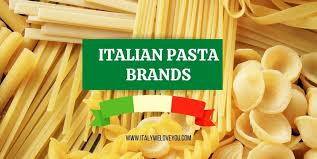Feeling saucy? Just how much does Italy, and Europe, love pasta?

Brussels: EU’s pasta production increased by 20% in 2022 with Italy unsurprisingly leading the production, consumption, and exports.
Italy loves pasta. Penne, linguini, ravioli, fusili, capellini – the list goes on and on.
Made from unleavened dough with ground durum wheat and water, many believe the modern Italian pasta to be a descendant of ancient Asian noodles.
While it is difficult to trace the exact beginnings of pasta, it is firmly established that pasta has now become synonymous with Italy.
The southern European country produced more than 4 million tonnes of pasta in 2022, according to the latest numbers released by Eurostat.
That is almost 68% of the total amount of pasta produced in the EU in 2022 and includes uncooked pasta, not stuffed or otherwise prepared.
EU’s production figures also rose by a million tonnes compared to 2017 as it produced more than 6.1 million tonnes of pasta last year.
Unsurprisingly, Italy also leads the exports, making up 77% of the total pasta exported by the EU.
Figures from the Union of the Organizations of Manufacturers of Pasta Products in the EU say an average Italian eats 23.5 kilograms of pasta per year.
Greece comes second in the EU and its citizens consume half of what the Italians do per capita.
Globally, however, Tunisians and Venezuelans trump the Greeks, consuming 17 and 15 kilograms of pasta per capita.
Most of the pasta that is produced in Italy is consumed domestically, made evident by the low import figures as well as the gap between the amount of pasta produced and exported.
Germany and France, however, come at the top of the list of EU countries that import the most amount of pasta.
Germany represented 27% of total EU members’ imports in 2022, followed by France at 23%.
In terms of consumption per capita, Germany ranks 11th with 7.9 kilograms per capita, whereas an average French citizen consumes 9.1 kilograms per year, placing it in 7th position in the world.
Despite the increase in production, the price of pasta in Italy is skyrocketing – and has resulted in calls for a boycott of the food staple.
Angry shoppers in Italy had enough after the price soared by twice the rate of inflation in early 2023.
One consumer advocate group called for a weeklong national pasta strike in June, after the Rome government held a crisis meeting but ultimately decided not to intervene on prices.
“The macaroni strike is to see if keeping pasta on the shelves will bring down the prices, in the great Anglo-Saxon tradition of boycotting goods,” Furio Truzzi, president of the group, Assoutenti, said in June.
“The price of pasta is absolutely out of proportion with production costs.”





